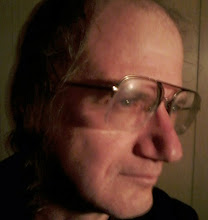The Last Cadre
It is more than a debate. It is more than just books. It is a real war, ruining and taking lives, destroying nations, destroying our world.
It is the eternal war against evil, in whatever form it takes over the centuries and millennia, monarchy, oligarchy, aristocracy and partocracy, plutocracy, theocracy and psychosociocracy (the commissar, police or doctor state).
My moralist primer The Uncivil War (1984-2003, 2009) is intended to be a quick-'n'-dirty introduction to that war.
It has a number of features useful to such an introduction: It covers the fundamentals; its chain-argument extends to a huge number of subjects, each briefly; it replaces the major premise of the argument modus ponens by its contrapositive (but presenting it for lit'ry reasons predicate-first), which form of argument seems peculiarly suited to arguing outward from a central premise, in this most supreme of all cases the existence or reality of morality; it confers tremendous analytical power by its two grand equivalences, morality, responsibility, choice and individuality, and (public) morality, justice, liberty and government, the first explicitly invoked, the second passim (twice); it affords tremendous moral and intellectual clarity by its reductions of various popular contradictions of the existence or reality of morality; it provides a splendid and revealing test for evil; and above all it is concise, its quite quite deliberate honing-unto-invisibility maximizing the chance of its being inhaled in one fell bolus.
No publisher will touch the primer.
But it is available at present as a free Lulu.com PDF, and a Lulu.com POD paperback (email me for bulk purchases).
Keywords: aristocracy, evil, good, Great Debate, monarchy, moralism, morality, normative moral philosophy, oligarchy, partocracy, philosophy, plutocracy, psychosociocracy, theocracy, war of books

